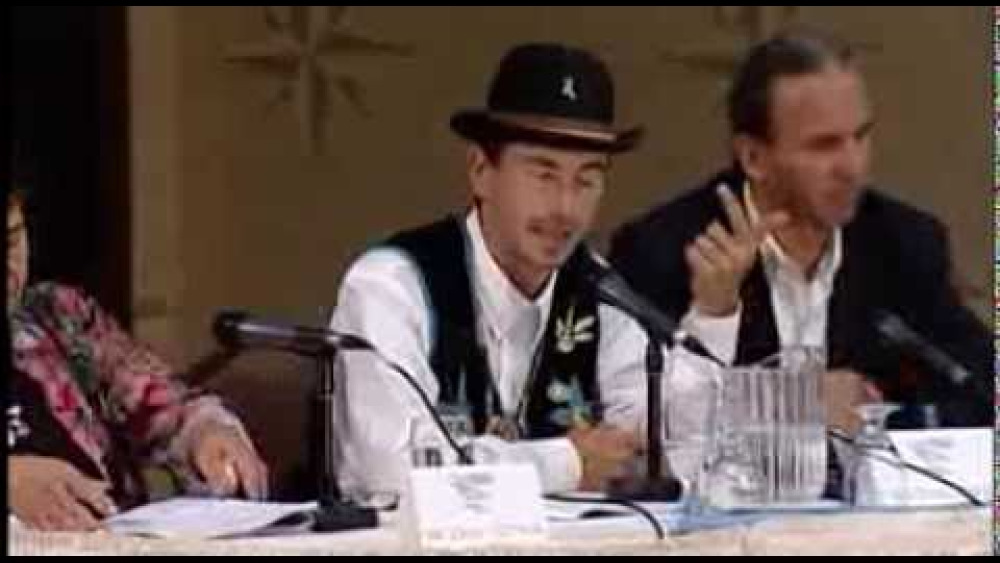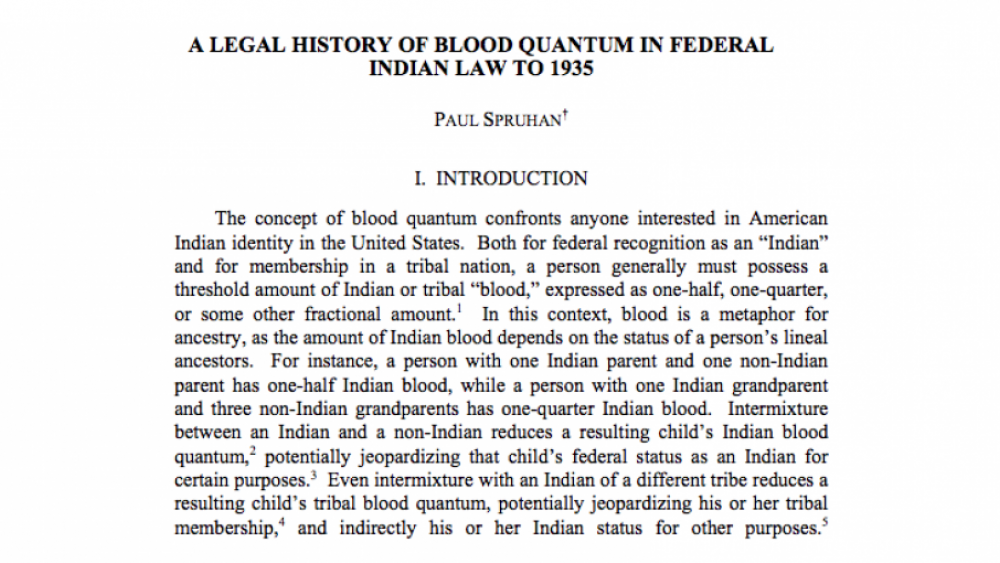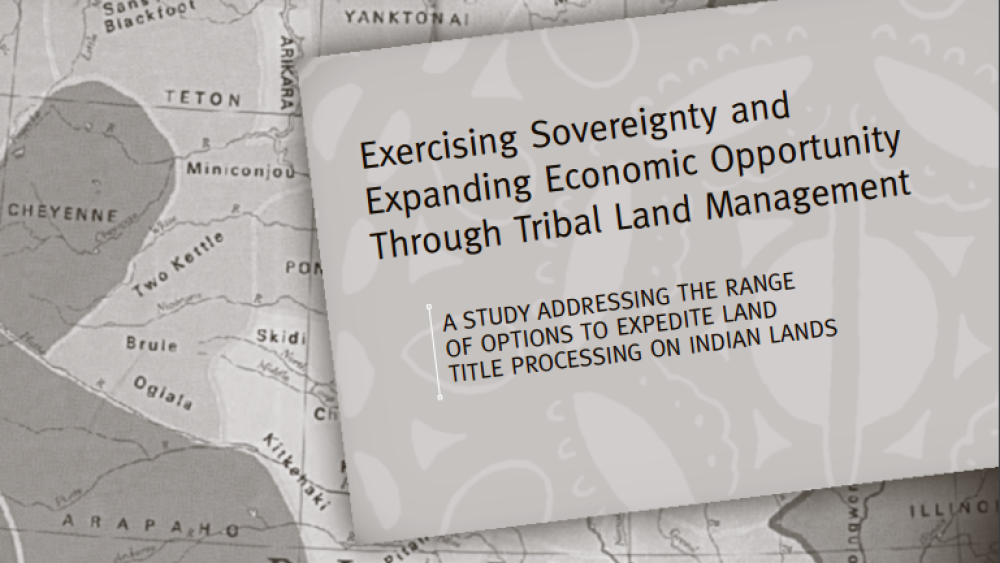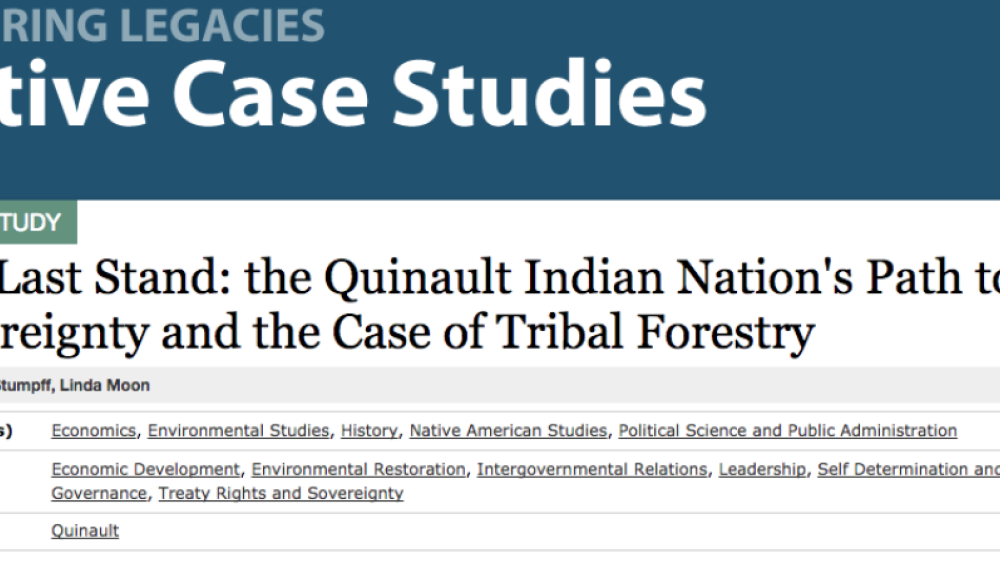Indigenous Governance Database
Bureau of Indian Affairs
Peterson Zah: Finally We Are Growing Our Own
Recorded on March 25, 2010, in this lecture Dr. Peterson Zah discusses the history of Native American education, Navajo education, and his involvement recruiting Native American students to attend college. He also stresses the importance of higher education to the success of Native nations' efforts…

Truth To Tell: Community Connections - White Earth Constitutional Forum Part I
In collaboration with production partner KKWE/Niijii Radio, TruthToTell and CivicMedia/Minnesota traveled west on August 14, 2013, to the White Earth Reservation to air/televise the seventh in our series of LIVE Community Connections forums on critical Minnesota issues. Convened at White Earth's…

A Legal History of Blood Quantum in Federal Indian Law to 1935
The paper traces the development of the use of blood quantum, or fractional amounts of Indian blood to define Indian in federal law up to the Indian Reorganization Act of 1934. The paper shows that blood quantum was not widely used in federal law until the twentieth century, as the branches of the…

Exercising Sovereignty and Expanding Economic Opportunity Through Tribal Land Management
While the United States faces one of the most significant housing crises in the nation’s history, many forget that Indian housing has been in crisis for generations. This report seeks to take some important steps toward a future where safe, affordable, and decent housing is available to Native…

The Last Stand: the Quinault Indian Nation's Path to Sovereignty and the Case of Tribal Forestry
This case tells a story of forestry management policies on the Quinault Reservation. In the early years, the Office of Indian Affairs (OIA) and later the Bureau of Indian Affairs (BIA) acted like a landlord, allocating large timber sales to non-Indian timber companies. The Dawes Act fragmented the…
Pagination
- First page
- …
- 1
- 2
- …
